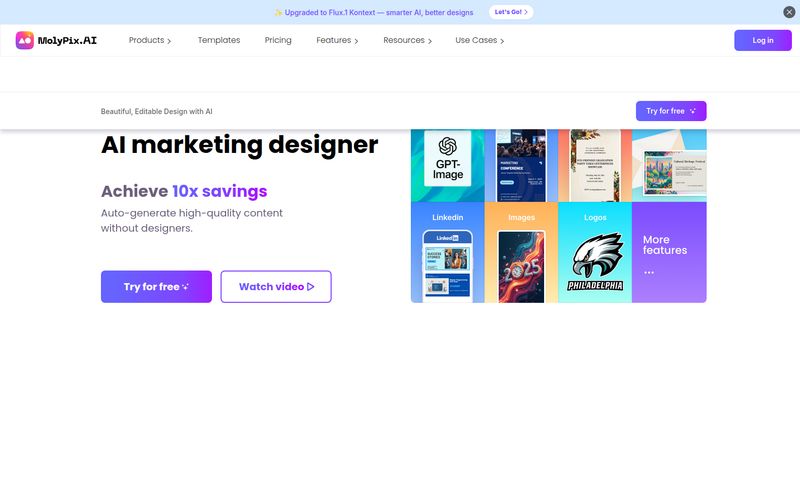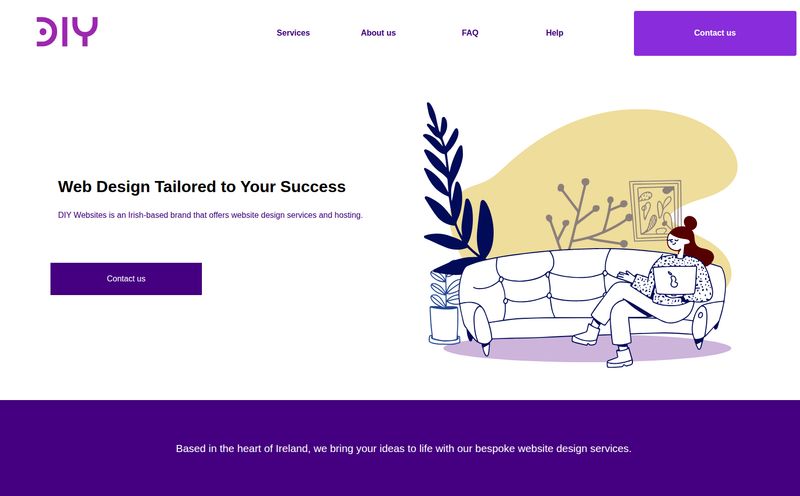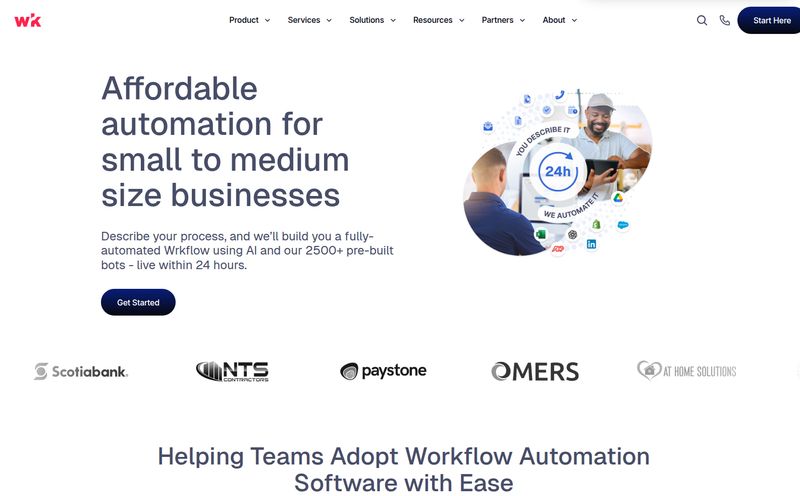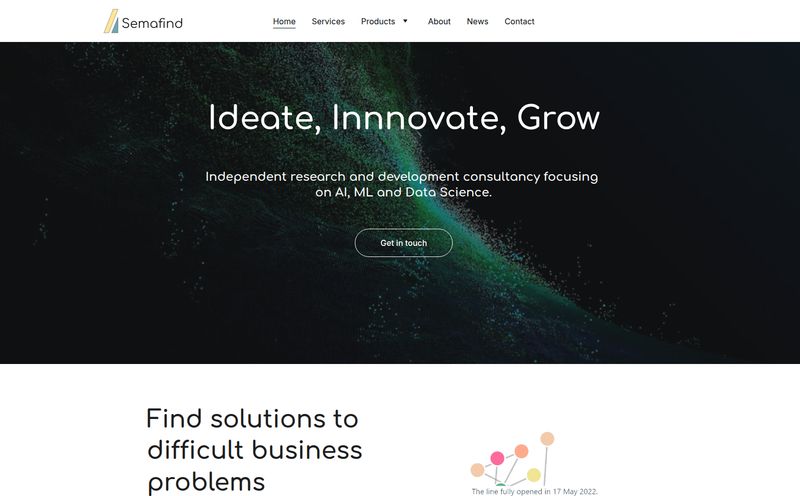If you’re a founder, the phrase “marketing strategy” can either fill you with excitement or a deep, soul-crushing dread. It’s this massive, nebulous thing you know you need, but getting from a great idea to a brand that people actually recognize and pay for? That’s the whole ballgame.
I was clicking through the web the other day, down one of my usual rabbit holes of startup tools and growth agencies, when I landed on a site that just… felt different. The name was Gitsul Group. The design was slick, dark, and minimalist. And the first thing I saw was a GIF of a confused-looking John Travolta from Pulp Fiction. I laughed out loud. It was such a specific, confident, and slightly weird choice. It felt less like a stiff corporate handshake and more like a knowing nod from someone who gets it. They get the chaos.
Their headline cut right through the noise: “Beautiful builds that actually convert.” Followed by, “We help you get from 0 to 1.” That’s a bold claim. Going from zero to one is the hardest part of any new venture. It’s not about optimizing, it’s about creating. So, who are these guys, and can they actually deliver on such a critical promise?
So What is Gitsul Group, Really?
Peeling back the layers, Gitsul Group positions itself as a strategic partner for businesses, especially those in the AI and SaaS space. Their whole thing is about using AI-powered marketing insights to implement strategy, design, and development—fast. This isn’t your traditional, slow-moving agency that takes six months to deliver a PowerPoint deck.
Their services are listed clearly: Strategy, Branding, Product Design, Websites, and No-Code Development. This tells me they’re not just consultants who hand you a plan and wish you luck. They’re builders. They’re aiming to be the hands-on team that takes a concept and turns it into a living, breathing product with a marketing engine attached.
That “0 to 1” philosophy is what really hooked me. In the startup world, we hear that phrase a lot, usually from investors like Peter Thiel. It’s the difference between inventing something new and just copying what’s already there. For a marketing agency to adopt this language suggests they understand that a startup’s needs are fundamentally different. You don't need a 10% lift in an existing channel; you need the channel to exist in the first place.
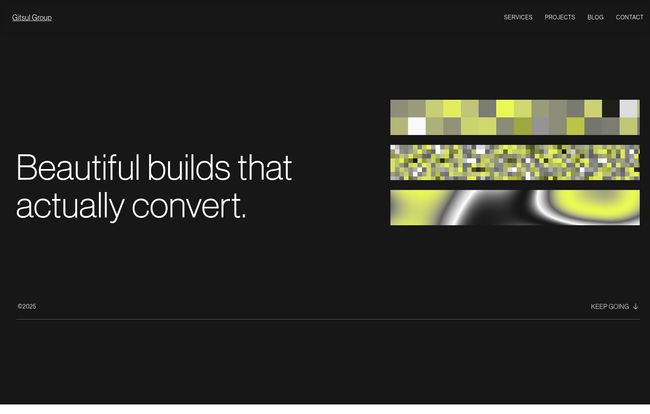
Visit Gitsul Group
A Look Under the Hood at Their Services
It's one thing to have a cool website, but it’s another to have an offering that makes sense. Gitsul's service stack seems really well-thought-out for their target audience.
More Than Just a Plan: The Strategy Component
Everything starts with strategy. You can have the most beautiful website in the world, but if it's aimed at the wrong people with the wrong message, you're just burning cash. Gitsul puts this first, suggesting they focus on the 'why' before the 'what.' For any founder, this should be music to your ears. A solid brand strategy is the foundation for everything else, from your ad copy to your sales calls.
The Rise of No-Code and Rapid Builds
Here’s where things get really interesting for me. They explicitly list “No-Code Development.” This is huge. For years, getting a custom web app or a sophisticated site meant finding (and funding) a team of developers. It was slow and expensive.
No-code platforms like Webflow, Bubble, and others have completely changed the game, allowing for complex, powerful sites to be built visually. By specializing in this, Gitsul Group is basically saying, “We can build you something amazing, and we can do it in a fraction of the time and cost of traditional development.” For a startup trying to get to market before the money runs out, that speed is everything. It’s a massive competitive advantage.
Connecting Design and Conversion
Their tagline isn’t just “Beautiful builds.” It’s “Beautiful builds that actually convert.” Anyone who’s been in the SEO and CPC trenches for a while knows that pretty design doesn't always equal performance. A great design guides the user, builds trust, and makes it painfully obvious what they should do next. Gitsul’s focus on Product Design and Websites, combined with their conversion-focused language, suggests they operate at that perfect intersection of aesthetics and effectiveness.
But Does It Actually Work? Examining the Proof
Okay, the million-dollar question. Can they back it up? On their site, they flash some pretty impressive logos—Google, SullivanStrickler, and Brooklyn Boulders, to name a few. Working with a giant like Google, even in a consulting capacity, lends a serious dose of credibility.
They also put a hard number on their results: “Our portfolio shows an average increase of 80% customer engagement and growth from pre to post product launches within their first year.” Now, that’s a stat I can sink my teeth into. An 80% lift in engagement is significant. It’s the kind of traction that turns a fledgling startup into a viable business. It’s the proof that the “0 to 1” jump happened.
While I’d love to see full-blown case studies detailing the journey with each of those clients, the combination of strong social proof and a clear, confident metric is compelling. It’s more than a lot of agencies are willing to put out there.
The Elephant in the Room: Where’s the Pricing?
So I scrolled around, clicked every link, and… nada. No pricing page. No neat little tiers with monthly fees. At first, I was a bit annoyed. As a buyer, I want to know if something is in my ballpark before I get on a call. Right?
But then I thought about it from their perspective. If your whole model is custom “0 to 1” builds, how could you possibly put that in a pricing table? The needs of a two-person SaaS startup are wildly different from a venture-backed AI company looking to launch a new product. A simple no-code website isn't the same as a deep, strategic dive and full product design.
This isn't a SaaS tool; it's a high-touch service. The lack of public pricing almost certainly means their model is 100% custom. You get in touch, you discuss your goals, and they build a proposal just for you. For the kind of transformational work they're promising, that makes a lot more sense than a one-size-fits-all price tag.
Gitsul Group vs. DIY vs. A Traditional Agency
So, where do they fit in the ecosystem? If you’re a founder, you basically have three choices for getting your marketing off the ground. Here’s how I see it breaking down:
| Factor | Gitsul Group | DIY (Do It Yourself) | Traditional Agency |
|---|---|---|---|
| Speed | High (focus on rapid builds) | Slow (your time is limited) | Slow to Medium |
| Cost | Custom (Investment) | Low (but costs your time) | High |
| Expertise | High (specialized) | Low to Medium (you learn as you go) | High (but may be broad) |
Looking at it this way, Gitsul seems to be carving out a sweet spot. They offer the expertise of a traditional agency but with the speed and agility that startups desperately need, thanks to their focus on AI insights and no-code tools.
Frequently Asked Questions
- What kinds of businesses does Gitsul Group work with?
- Their site and messaging strongly suggest a focus on early-stage businesses, particularly startups in the Software-as-a-Service (SaaS) and Artificial Intelligence (AI) sectors who need to build their initial market presence.
- Is Gitsul Group expensive?
- There's no public pricing, which is typical for custom agency work. The cost will likely depend entirely on the scope of your project. It's an investment, probably more than DIY tools, but likely more efficient and targeted than a large, traditional agency.
- What does “0 to 1” marketing actually mean?
- It means building something from nothing. It's not about optimizing an existing marketing funnel; it's about creating the funnel itself. This involves establishing the brand, defining the audience, building the platform (website/app), and launching the initial campaigns to get the first wave of users or customers.
- What are AI-powered marketing insights?
- This generally means using artificial intelligence tools to rapidly analyze market data, competitor performance, consumer trends, and advertising results. AI can spot patterns and opportunities much faster than a human team, allowing for quicker and more data-driven strategic decisions.
- Why is their focus on no-code a big deal?
- Because it means speed and cost-efficiency. No-code development allows for the creation of sophisticated websites and applications without traditional coding, drastically reducing development time and costs. For a startup, this means getting a professional-grade product to market faster.
My Final Take: Is Gitsul Group Your Partner?
After digging in, I get it. I get the confident vibe, the minimalist site, and even the Travolta GIF. Gitsul Group isn't trying to be everything to everyone. They are laser-focused on a very specific, very painful problem: getting a new venture off the ground.
They seem to be an ideal partner for a tech-savvy founder who values speed, understands the power of good design, and needs a team that can both strategize and execute. If you have a great product but are staring at a blank slate when it comes to marketing, branding, and your web presence, they seem to speak your language. They're not just offering services; they're offering momentum.
If you're an established corporation looking for a slight bump in your quarterly numbers, they might not be the right fit. But if you’re at zero and need to get to one? It seems well worth starting a conversation.
